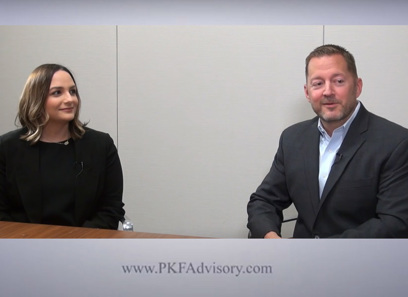M&A Outlook: How Economic Factors Are Influencing Mergers and Acquisitions Worldwide
M&A Outlook: How Economic Factors Are Influencing Mergers and Acquisitions Worldwide
Blog Article
Checking Out the Economic and legal Aspects of Mergers and Acquisitions Deals

Summary of Mergers and Acquisitions
Mergers and procurements (M&A) stand for a substantial segment of corporate method, with countless purchases occurring around the world each year. These calculated maneuvers are mainly targeted at boosting affordable advantage, broadening market share, and achieving operational harmonies. M&An activities commonly fall right into 2 distinctive groups: mergings, where 2 companies incorporate to form a brand-new entity, and purchases, where one company acquisitions another, therefore preserving its identity.
The inspirations behind M&A deals are differed. Firms might go after these techniques to diversify their item offerings, go into brand-new markets, or utilize technical developments (Economic factors influencing M&A). In addition, M&A can offer as a way to get rid of competitors or get to important intellectual residential or commercial property
The process of M&An includes numerous phases, consisting of target identification, arrangement, assimilation, and appraisal. Successful purchases require detailed due persistance to evaluate economic wellness, operational capabilities, and prospective responsibilities of the target firm. Cultural alignment in between combining entities plays a crucial duty in making certain a smooth change and lasting success. As companies navigate the intricacies of M&A, recognizing the potential difficulties and calculated imperatives is crucial for attaining desired end results in a significantly affordable landscape.
Lawful Structure and Compliance
Recognizing the legal framework and compliance requirements surrounding mergings and procurements is crucial for browsing the complexities of these transactions - Economic factors influencing M&A. These procedures are controlled by a myriad of legislations at both federal and state degrees, which aim to guarantee fair competitors, secure stakeholders, and promote corporate administration criteria
Trick regulatory bodies, such as the Federal Trade Compensation (FTC) and the Stocks and Exchange Payment (SEC), apply antitrust regulations and securities laws, respectively. Business must carry out comprehensive due persistance to determine any potential lawful barriers, including anti-competitive concerns or regulatory authorizations necessary for an effective purchase.
Additionally, conformity with disclosure responsibilities is critical, especially when public business are included. This consists of declaring needed documentation and providing exact details to shareholders and governing authorities.
Cross-border M&A transactions present extra layers of intricacy, as differing legal criteria and regulatory structures must be browsed. Involving legal advice with know-how in mergings and procurements is important to make sure adherence to appropriate legislations and to reduce risks. Therefore, comprehending these legal frameworks not just promotes conformity yet likewise boosts the possibility of a successful and efficient merger or acquisition.
Financial Valuation Methods

Among the most typical techniques are the Discounted Capital (DCF) evaluation, which approximates the existing worth of expected future capital, and the Similar Business Evaluation (CCA), which assesses a company's value loved one to similar firms within the exact same market (Economic factors a knockout post influencing M&A). Additionally, Precedent Deals Evaluation (PTA) checks out historic purchase information to establish standards for assessment
Another substantial technique is the Asset-Based Appraisal, which concentrates on the firm's net property worth, offering a concrete analysis of worth by thinking about both current and long-lasting responsibilities and assets. Each technique has its strengths and constraints, commonly varying in applicability depending upon the nature of business and the market context.
Ultimately, employing a mix of these monetary valuation strategies can produce an extensive understanding of a company's value, assisting to make sure that both customers and vendors take part in fair and reasonable purchases throughout the detailed process of mergings and purchases.
Due Persistance Refine
Carrying out complete due persistance is important to revealing important information regarding a target business before completing a merging or purchase. their explanation This process includes a thorough evaluation of the target's financial, operational, legal, and governing facets. The key aim is to recognize potential threats and liabilities that might affect the transaction's worth or post-merger performance.

Furthermore, social due persistance assesses the compatibility of the merging entities' company societies, which is crucial for a successful combination. The due persistance procedure calls for collaboration among various stakeholders, consisting of legal advice, monetary consultants, and sector experts, to guarantee an alternative understanding of the target business.
Inevitably, the searchings for from due persistance inform arrangement strategies and might lead to modifications in the purchase price or terms, consequently protecting the rate of interests of the obtaining event and laying the groundwork for a successful merger or acquisition.
Post-Merger Combination Challenges
While successful mergings and procurements typically create significant harmonies and growth chances, the post-merger combination stage offers a myriad of difficulties that can undermine these advantages. One of the foremost concerns is the social assimilation of the merging entities.
One more substantial difficulty hinges on aligning procedures and systems. The integration of disparate IT systems, functional practices, and economic coverage can be complex try these out and lengthy, typically resulting in functional disturbances. Furthermore, the failing to communicate successfully throughout this stage can result in confusion and false information among employees, stakeholders, and consumers.
Financial assimilation additionally postures obstacles, particularly in integrating financial plans and accountancy methods. This misalignment can lead to disparities in monetary reporting, affecting stakeholder self-confidence and market assumption.
Last but not least, regulatory compliance issues may occur, requiring thorough attention to legal demands. Dealing with these difficulties promptly and tactically is vital for understanding the awaited advantages of a merger or purchase, making certain long-lasting success and security.
Verdict
In verdict, the intricate landscape of purchases and mergings necessitates a thorough understanding of both monetary and legal aspects. Adherence to regulative frameworks ensures compliance and alleviates anti-competitive risks, while durable monetary assessment methods offer vital insights into company well worth.
The detailed landscape of mergings and purchases deals demands an extensive understanding of both lawful frameworks and economic assessment techniques. Regulatory bodies, such as the FTC and SEC, enforce stringent compliance requirements to safeguard against anti-competitive habits, while durable financial analysis methods are necessary for properly assessing a firm's value. Effective deals require thorough due diligence to analyze economic wellness, operational capabilities, and possible obligations of the target company.Financial due persistance checks out historic and predicted economic statements, cash circulation analysis, and tax conformity. Adherence to governing frameworks makes sure conformity and mitigates anti-competitive risks, while robust monetary evaluation strategies provide essential understandings right into business well worth.
Report this page